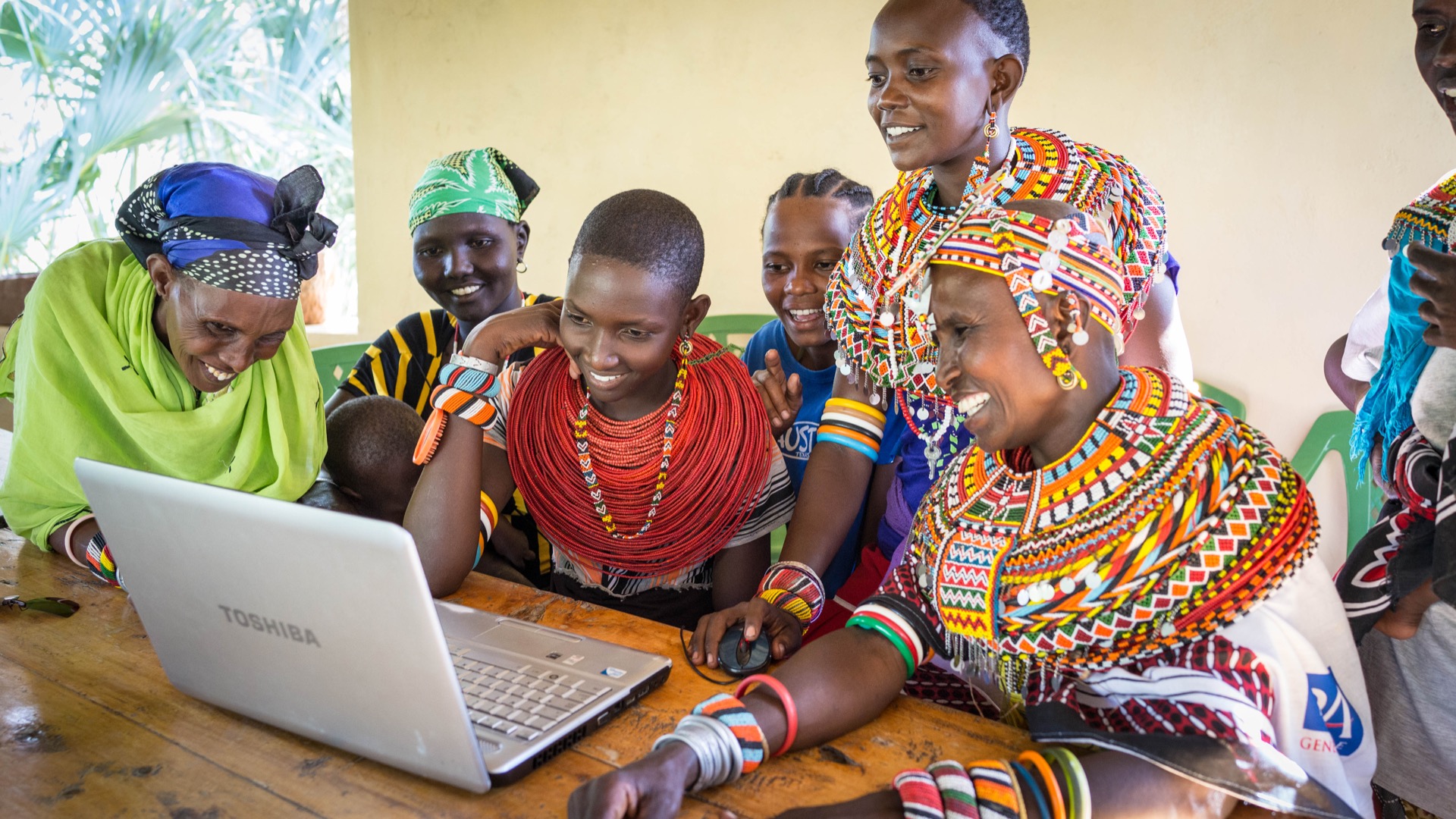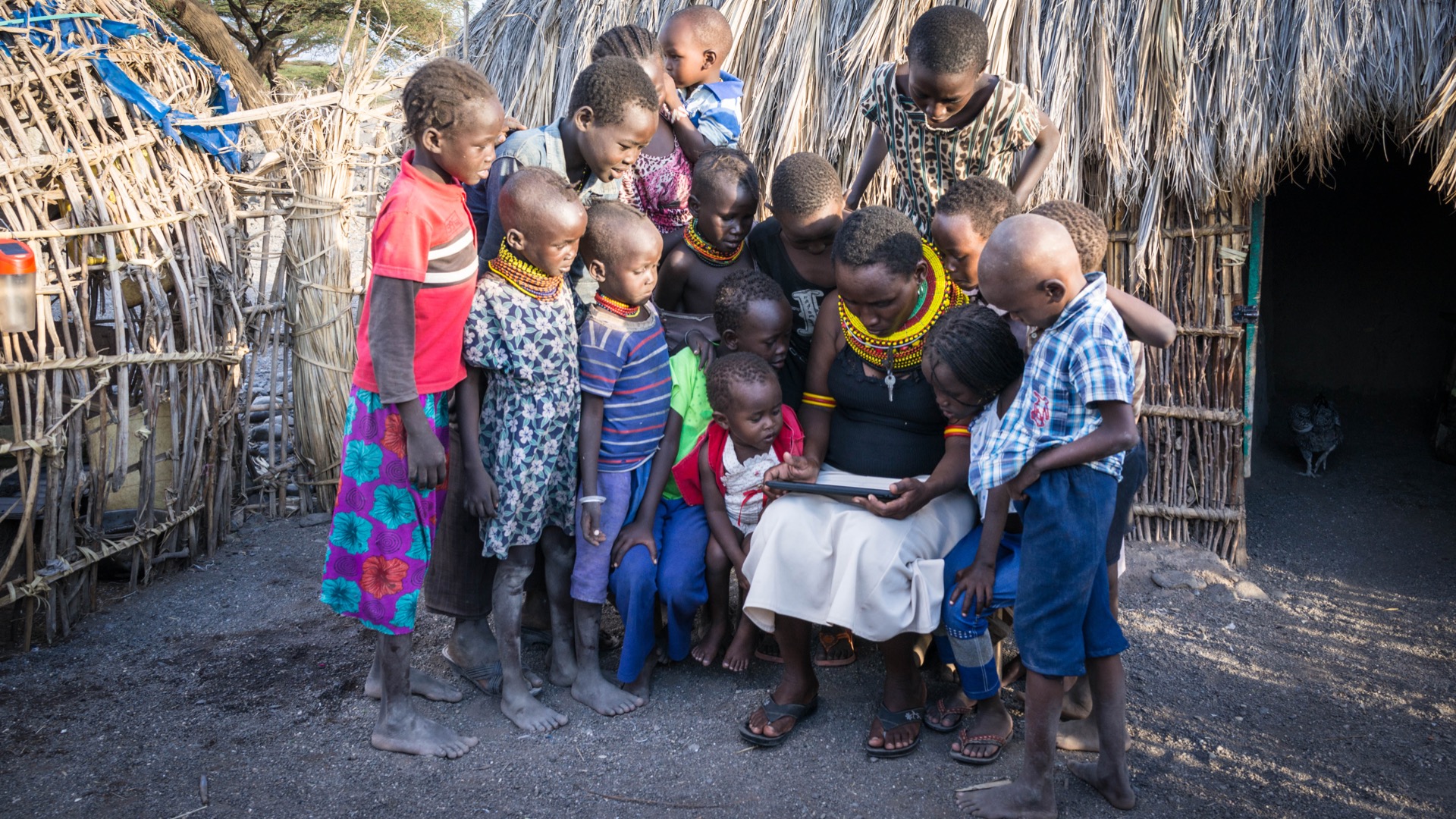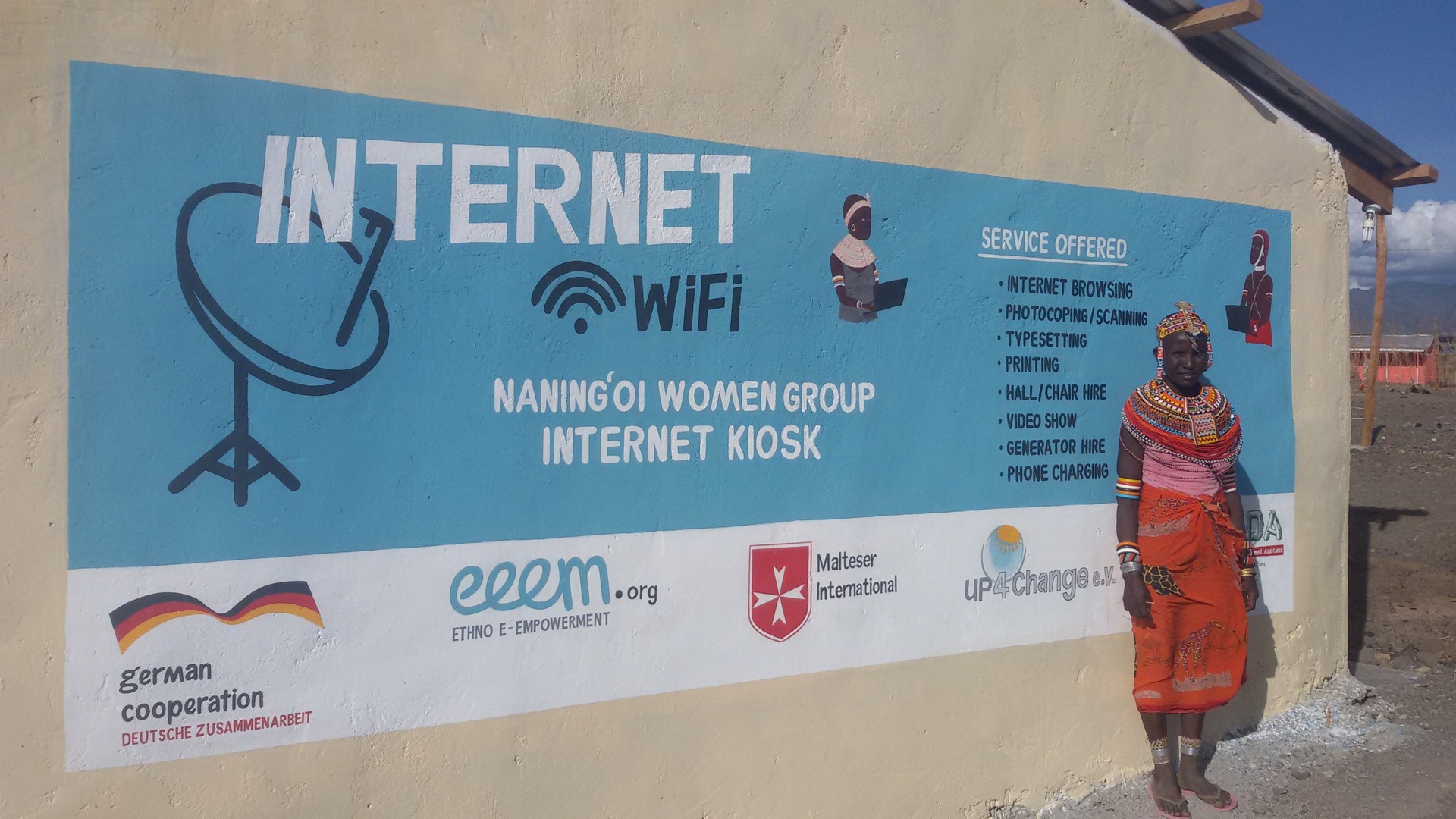
Report from the field
Since 2012 we are working with “The Real Digital Nomads” in northern Kenya. From July 2016 till March 2017, we carried out our pilot project funded by the German Federal Ministry of Economic Cooperation and Development (BMZ): “Resilience strengthening of pastoralist women groups through digital Basic Alphabetization with life-relevant materials in form of eBooks”. We used six eBooks (Manyatta, Fora, Town, Drought Resilience, Alternative Livelihoods and Animal Health) in two communities in Marsabit County with five ethnic groups and reached 300 women and young warriors. Malteser International and PACIDA helped us to implement our eeem.org project.
Our eeem.org (which stands for “ethno e-empowerment”) approach consists of the following modules:
Ethnographic video and photo materials,
eBooks with true-to-life content to playfully learn basic literacy and simple calculations to acquire necessary life skills,
tablets with solar charging devices to be mobile and independent and
barefoot teachers as multipliers.

First interviews with chairwomen Talaso and daughter in law Teresia, 2012
Various experts are constantly working hand in hand with the pastoralists themselves as film makers with a profound ethnological background being familiar with development policies, an IT specialist and designer working with eLearning and pedagogy experts. You can download an overview of example pages of our eBooks here.
We all are kept in a feedback-loop with a cultural anthropologist and the pastoralists since our success criteria are the acceptance, understanding and learning progress of the pastoralists.
Trainings August and November 2016
The training workshops for barefoot teachers in Loiyangalani and Hurri Hills were really successful. We introduced the eBooks in 7-day training courses, working very effectively in small groups. The participants became quickly familiar with the iPad and appreciated the eBooks on different levels – because of their content and as learning tools. Twelve tablets with six eBooks were distributed to selected barefoot teachers in order to enable them to share their knowledge with village neighbors and warriors. Have a look at the video about our first barefoot teachers on the right.
The way the participants react to the training indicates that we are on the right track as far as the technical equipment and the content of the eBooks are concerned. Program manager Ibrahim Abdallah from PACIDA wrote in his first report:
„In a wider perspective, the introduction of e-books into beading and livestock rearing had several benefits and outcomes. While e-books, beading, fodder production, M-pesa, scratch cards, resilience to drought and livestock rearing may seem worlds apart, bringing them together did more than simply prove that rural folks can learn to use e-books, if only the activity that the e-books is applied to is relevant to them. (…) A case in point is that of drought cycle. Most of the learners asserted that drought will not find them unaware again. Based on the knowledge they have gained from the eBooks they can now adequately prepare for drought on which stages of drought cycle they can buy and sell their livestock”.
The Tests/Quizzes we introduced in November proved that the barefoot teachers understood the content and could teach it to their pupils.

First testing of our eLearning program with Laptop in 2014
Results
295 students were reached by the barefoot teachers in Loiyangalani and in Hurri Hills until the end of March 2017. The barefoot teachers in Loiyangalani met 134 students in total. The 3 barefoot teachers in the village taught 2-3 hours 2 times a week. The two Moran in the fora, Safo Ogom and Magan Lemirikakona, who taught each evening for one to two hours, reached 62 students. In Hurri Hills, 6 barefoot teachers reached 161 students, knowing that Daro Kalla taught at least 2 hours each day. Please notice the video on the left.
Considering that over 50% of the project duration fell into a severe drought, the fact that so many students could be addressed is impressive. Monitoring and evaluation expert from PACIDA, Joel Kulmicha wrote in his final report:
“Most of the people interviewed observed that the knowledge they have gained helped them organize themselves to respond to problems such as drought and health which they share collectively. This has in turn improved their quality of life”.

Barfoot teacher Veronica (Turkana) with kids of her village, 2016
Program manager Ibrahim Abdallah from PACIDA said:
“The urge to learn among the pastoralist is high and the programme came at the right time when the elderly and those who not had the opportunity to go to school had despair and regarded them as the forgotten lot. As one barefoot teacher would put it “I never thought I will have the opportunity to learn again let alone being a teacher. To be exposed to technology through tablets is something I never dreamt of let alone think of it.”
Concerning the small children who always had been around and were eager to learn with their parents, they not only get used to modern technology but also get introduced to cultural based learning content which lacks in the normal school curriculum. This is the first step to an educational system which integrates pastoral lifestyle.
Conclusion
“If this project was to be integrated into bigger picture of pastoralist communities grounded in experience gained from the two project sites then this will ultimately lead to best practice in the long run”
Quote by Joel Kulmicha, monitoring and evaluation expert, PACIDA
Pastoralists must be able to meet the requirements of modernity in the face of prolonged periods of drought due to climate change. With the tailor-made digital learning content, this can be achieved quickly and effectively. The barefoot teachers as multipliers in the community work better than previous educational offers.
We see our project as an important contribution to the resilience of nomadic societies. The economic viability of the project continues to unfold. As the pastoralists have learned to deal with drought cycles, sell their animals in time and save the money on their Mpesa account they will remain independent in times of need and do not have to rely on emergency aid. This goal requires that the project be continued, scaled and intensified over a longer period of time.
If you want to have more informations about the project you can find them here.


